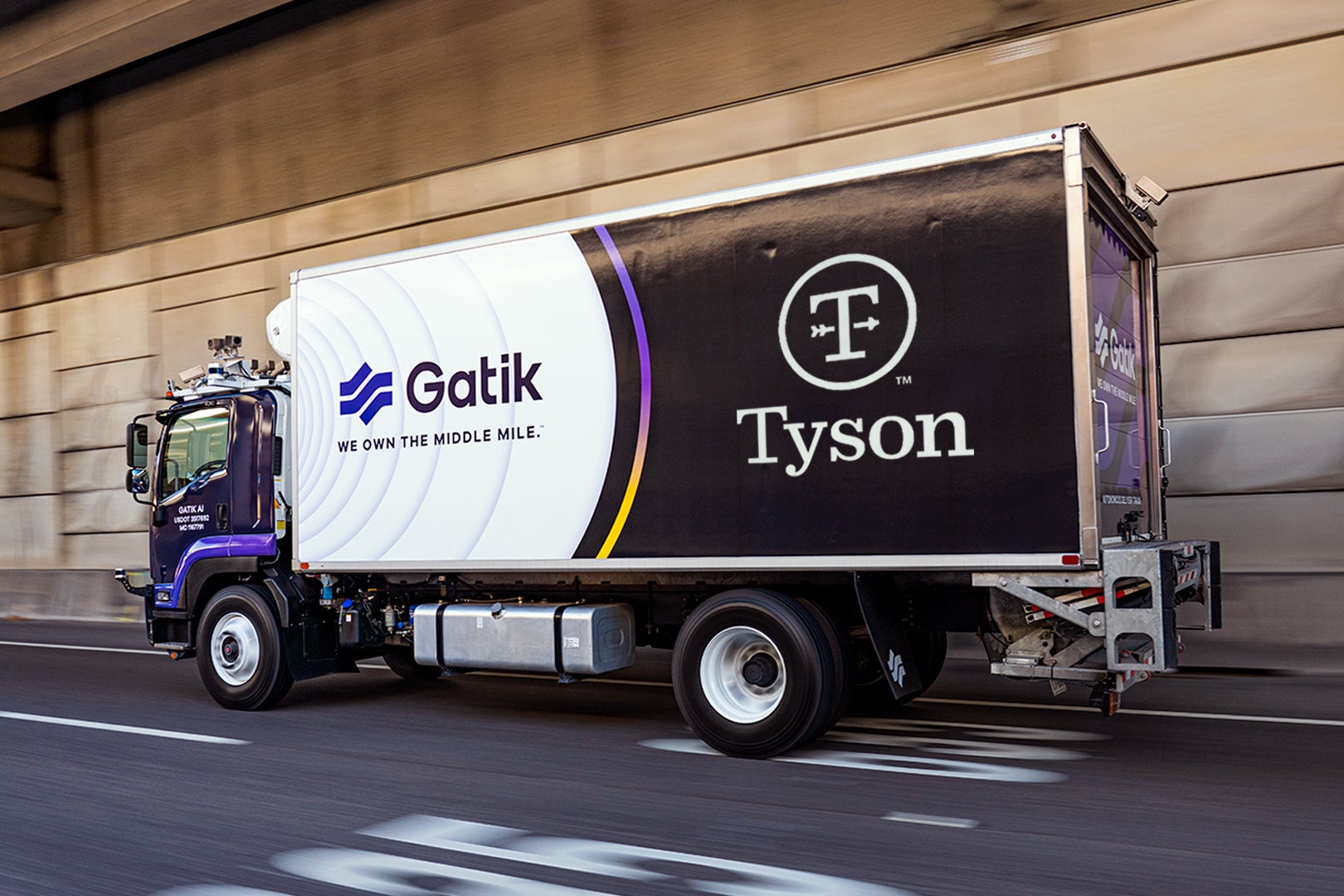A self-driving truck startup wants Waymo, Cruise, and others to follow its lead on safety
Gatik is undergoing the "most rigorous examination" ever done on a self-driving system by a third party

Self-driving truck startup Gatik on Thursday announced plans for what it calls the “most rigorous” third-party review of an autonomous driving system. And it wants others to follow its lead.
Suggested Reading
Gatik, which calls itself the leader in autonomous middle-miles, works with companies such as Walmart (WMT), Tyson Foods (TSN), and Kroger (KR) to move products on short routes between distribution centers and other locations. The company’s trucks have driven “hundreds of thousands” of miles without a driver and have carried out thousands of deliveries with its partners in the U.S. and Canada.
Related Content
Gatik is also one of, if not the only, self-driving startup with a perfect safety record — thanks to its cautious software that prioritizes avoiding difficult areas, such as roads near schools or hospitals. But according to CEO Gautam Narang, that’s not enough for Gatik to feel comfortable launching autonomous deliveries across North America.
“In the U.S., there are no specific standards when it comes to proving safety for autonomous vehicles,” Narang said, noting every company uses its own framework for safety. That’s “very important, very helpful, but we believe we can do better. The industry can do better.”
The company has hired two third-party research firms — Edge Case Research and TÜV SÜD — to audit Gatik’s technology and deployment across more than 700 safety portfolios. As the tests are conducted, Gatik said it will be providing public updates on its progress.
“Our Safety Case approach is tangible, comprehensive, and leverages the benefits of Gatik’s [business-to-business] short haul use-case to safely scale across our freight networks,” Gatik’s head of safety, Adam Campbell, said in a statement. He noted that the company has chosen to go “far beyond” the voluntary assessment established by regulators.
‘Incredibly high expectations’
This isn’t the first time an autonomous vehicle company — or group — has tried to set up core guidelines around safety for ethical reasons or to alleviate consumer concerns. Sixty-six percent of drivers fear self-driving vehicles, while 25% are uncertain, according to a March study from AAA.
The Autonomous Vehicle Industry Association — an industry group most major players, including Gatik, are part of — has what it calls the “TRUST” principles, which focus on transparency and a safety-first culture. In 2019, 11 companies banded to try and standardize safety, afraid that one bad actor could collapse the market.
But, by and large, most companies take different approaches to safety.
Some, such as Waabi or Wayve, take an artificial-intelligence-first approach to predict how vehicles move or learn from human behavior. Others, such as Google’s Waymo (GOOGL) or Tesla (TSLA), focus on collecting data from vehicles already on the road. Waymo recently published a series of datasets demonstrating its vehicles’ impact in four markets where the company operates.
As companies such as Waymo, Amazon’s Zoox (AMZN), and General Motors’ Cruise (GM) continue to expand their operations and aim to remove drivers from their cars, scrutiny has increased. Federal regulators launched investigations into Waymo, Zoox, Ford Motor Co., and Tesla earlier this year over issues related to their technologies.
Meanwhile, Cruise is still trying to shake off some consumer and regulatory concerns after a devastating incident almost exactly a year ago.
On Oct. 2, 2023, a human-driven vehicle struck a pedestrian in California, knocking her into the path of a Cruise robotaxi that then dragged the person about 20 feet forward. Last week, the company paid a $1.5 million penalty for failing to properly report the incident.
Since then, Cruise has undergone a series of leadership changes, established an executive board overseeing safety, published a third-party audit, and — for a time — suspended operations, among other things. The company has started to put its cars back on the streets in Houston, Dallas, Phoenix, and California’s Bay Area with a driver behind the wheel. Before returning to commercial operations, Cruise plans to commission another third-party audit.
“We recognize that our communities hold incredibly high expectations for the performance of [autonomous vehicles] on their roads - even higher than the current status quo performance of human drivers,” Cruise Chief Safety Office Steve Kenner said in a statement. “Safety is inextricable from community trust and transparency - in fact it is foundational to establishing that trust - which is why we have raised the bar on ourselves to be a ‘Role Model Driver.’”